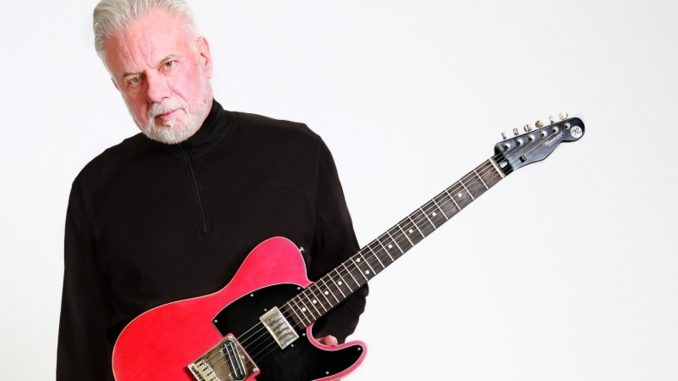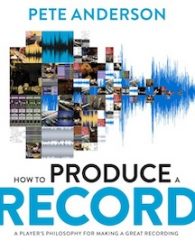
 One of the first questions Anderson attempts to answer in this fascinating book is: “What is a Producer?”. He makes an interesting comparison with the role of the director of a film. As the role these days can include scouting for locations (studios), casting for talent (session musicians), finding the right technical crew, and working on the creative aspects of the song. The pivotal role of a producer in bringing a record to life can mean their name is as associated with the end product as much as the artist’s. Another similarity to a film director.
One of the first questions Anderson attempts to answer in this fascinating book is: “What is a Producer?”. He makes an interesting comparison with the role of the director of a film. As the role these days can include scouting for locations (studios), casting for talent (session musicians), finding the right technical crew, and working on the creative aspects of the song. The pivotal role of a producer in bringing a record to life can mean their name is as associated with the end product as much as the artist’s. Another similarity to a film director.
So, what are Anderson’s qualifications for advising us on how to produce a record? A long association with Dwight Yoakam as guitarist and producer, along with production credits for a list of artists including Roy Orbison, Jackson Browne, Michelle Shocked, Buck Owens, and K.D. Lang. He’s also clearly a deep thinker about his work, which is how we end up with this book.
The key words in the title are “player” and “philosophy”. There are plenty of “how to” books on working with knobs and faders, but what Anderson is offering here is the why as much as the how. The chapter on ‘The Psychology of Bands‘ will resonate for anyone who has worked in a professional capacity with musicians, especially ones new to the recording process. I came to this book straight after reading Trevor Horn’s autobiography ‘Adventures in Modern Recording’. While Horn and Anderson work in very different parts of the musical forest, there are a lot of commonalities between their approaches to artists. It may sound manipulative to “oversell the importance of something inconsequential so they feel included”, as Anderson suggests here, but the truth is that someone, and ultimately all the costs end up with the artist, is paying the producer a lot of money to make the best record possible. Horn makes that point many times in his dealings with Frankie Goes To Hollywood and ABC, and Anderson does as well, going so far as to have a brief chapter on “ghosting”, or the art of replacing an inadequate band member with a competent player. It happens and it’s ok that it happens, whether it’s an artist’s useless drummer husband, described here, or Steve Howe playing guitar solos for Frankie.
Everyone who wants to write, play, and record music needs to read ‘The Coffee-Table Arrangement Session’ chapter. The blueprint he offers for getting the building blocks of a song in place could have saved thousands of wasted studio hours. And every chapter has honest, sometimes a little painfully so, inspiration for making the recording process work effectively for everyone. The section on mixing is also incredibly valuable. Comparing the way John Mellencamp and Bruce Springsteen records from the 80s were mixed was instructive and sent me back to listen to albums by both of them, from that time, with a new perspective. In the same chapter, he reminds us that the key listening experience is the one outside the studio, something that seems lost on many producers in these days of earbuds and phone speakers.
It would be easy to wax lyrical about every chapter in the book, but I flipped to the appendices. One on his favourite gear, which includes the Sony CF550 radio cassette for use as a room Mic, and another on his producer’s tool bag, which is going to be on my checklist for any trip to a recording session from now on.
As music fans, and even more as musicians, we tend to fight against the notion of music as product, but ultimately the costs of making a record, even if it will only ever be a digital download on Bandcamp, means that it must be good enough to sell a few copies at least. And that is quite apart from the vindication of your creative efforts you get from someone spending their hard-earned Pound, Dollar, or Euro. It’s therefore incumbent on you to make the best recording possible. If you want to achieve that then I would suggest you need a copy of Pete Anderson’s book at your elbow before during and after the recording session.
As well as a producer, Pete Anderson is a fine guitarist, as this song from his album ‘Even Things Up’ ably demonstrates
If you’ve enjoyed reading this review, stand by for Martin Johnson’s upcoming interview with the author himself. Martin will be talking to Pete Anderson about record producing, and all things music. That interview will be published shortly.


